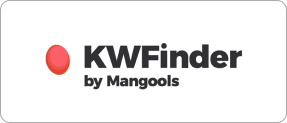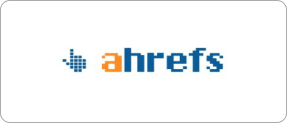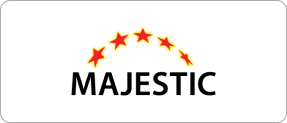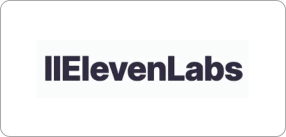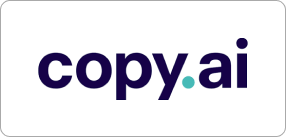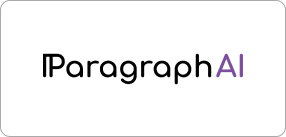Course Duration - 6 Weeks
Module 1: Introduction to SEO
What is SEO?
- Definition and Importance of SEO.
- How SEO drives organic traffic.
- SEO vs. Paid Search (PPC).
2.How Search Engines Work
- Crawling, indexing, and ranking.
- Search engine algorithms.
3.SEO Overview
- Types of SEO: On-page SEO, Off-page SEO, Technical SEO.
- Understanding SEO goals (traffic, rankings, conversions).
Module 2: Keyword Research and Strategy
1. What are Keywords?
- Types of keywords: short-tail, long-tail, and LSI (Latent Semantic Indexing).
- The importance of search intent.
2. Keyword Research Tools
- Google Keyword Planner, Ahrefs, SEMrush, Ubersuggest.
3. How to Conduct Keyword Research
- Finding relevant keywords for your niche.
- Analyzing keyword difficulty and search volume.
- Identifying competitor keywords.
4. Keyword Strategy
- Keyword mapping: Where to place your keywords on a website.
- Prioritizing keywords for different content types.
Module 3: On-Page SEO
1.What is On-Page SEO?
- The role of on-page SEO in ranking.
2.Key On-Page Ranking Factors
- Title Tags: Writing optimized titles with keywords.
- Meta Descriptions: Crafting compelling descriptions.
- Headers (H1, H2, H3, etc.): Structuring content for readability and SEO.
- URL Structure: Best practices for clean, SEO-friendly URLs.
- Keyword Placement: Optimizing content, images, and videos for keywords.
3.Content Optimization
- Writing high-quality content that satisfies user intent.
- Content length, keyword density, and engagement signals.
- Internal Linking: Importance and best practices.
- Image Optimization: Alt text, file names, and file size.
Module 4: Technical SEO
What is Technical SEO?
- How it impacts rankings and user experience.
Website Crawlability and Indexing
- Robots.txt file, XML Sitemap, and HTTP status codes.
- Ensuring proper site indexing with Google Search Console.
Mobile SEO
- Importance of mobile-first indexing.
- Mobile-friendly design and responsiveness.
Page Speed Optimization
- Techniques for improving page loading times (caching, image optimization, minification of resources).
- Tools: Google PageSpeed Insights, GTmetrix.
Structured Data and Schema Markup
- How schema helps search engines understand content.
- Types of schema: Articles, reviews, FAQs, etc.
Canonical Tags and Duplicate Content
- Understanding and handling duplicate content issues.
- The role of canonical tags.
Module 5: Off-Page SEO
What is Off-Page SEO?
- How off-page SEO helps build authority and credibility.
Link Building
- The importance of backlinks in SEO.
- White-hat vs. black-hat link building techniques.
- Link acquisition strategies: Guest blogging, broken link building, skyscraper technique.
Social Media and SEO
- Social signals and their indirect influence on rankings.
- How to leverage social media for SEO.
Brand Mentions and Online Reputation
- Importance of brand mentions, both with and without links.
- Managing and monitoring your online reputation.
Module 6: Local SEO (If Applicable)
What is Local SEO?
- Why Local SEO matters for small businesses.
- Difference between Local SEO and Traditional SEO.
Optimizing Google My Business
- Setting up and optimizing your Google My Business profile.
- How to manage customer reviews and ratings.
Local Citations and Directories
- Importance of consistent NAP (Name, Address, Phone number) across the web.
- Popular local directories and citation-building strategies.
Localized Content
- Creating location-specific content to rank in local searches.
Module 7: SEO Analytics and Tools
Google Analytics
- Setting up and understanding Google Analytics
- Key metrics: Organic traffic, bounce rate, average session duration, and conversions.
Google Search Console
- Understanding search performance data.
- Monitoring crawl errors and indexing issues.
- Analyzing keyword rankings and clicks.
SEO Reporting Tools
- Tools: Ahrefs, SEMrush, Moz.
- How to track keyword rankings, backlinks, and site health.
Module 8: Advanced SEO Techniques
Advanced Keyword Strategies
- Topic clusters, semantic search, and user intent.
- Optimizing for voice search and featured snippets.
Content Marketing & SEO Synergy
- How content marketing and SEO work together.
- Developing an ongoing content strategy that aligns with SEO goals.
International SEO
- SEO strategies for global and multi-regional websites.
- Handling hreflang tags and regional targeting.
Module 9: SEO Best Practices and White-Hat Techniques
Staying Up-to-Date with SEO Trends
- Following SEO blogs, forums, and updates from Google.
Google Algorithm Updates
- How to stay on top of changes (Panda, Penguin, BERT, etc.).
- Penalties and how to recover from them.
Ethical SEO Practices
- Importance of white-hat SEO techniques.
- Avoiding black-hat techniques like keyword stuffing, cloaking, and link farming.
Module 10: SEO Project and Case Studies
Real-World Case Studies
- Reviewing case studies of successful SEO campaigns.
- Analyzing what strategies worked and why.
SEO Project
- Hands-on project: Apply what you've learned to optimize a website from scratch.
- Conduct keyword research, on-page optimization, and link building.
Additional Resources:
- SEO Blogs and Tools: Moz, Ahrefs Blog, Backlinko, Neil Patel, Search Engine Journal, Google Webmaster Guidelines.
- Free Tools: Google Search Console, Google Analytics, Ubersuggest, Screaming Frog (free version).
- Books and Guides: "The Art of SEO" by Eric Enge, "SEO 2024" by Adam Clarke.










